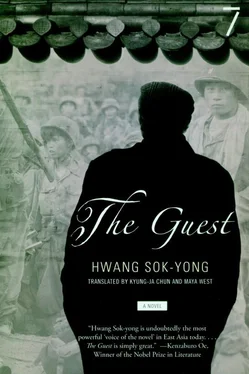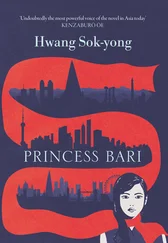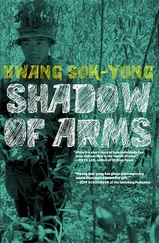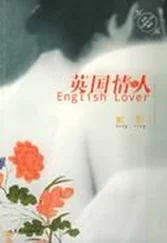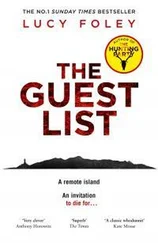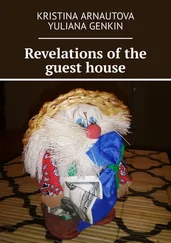Now, look. You see? It’s my hometown.
There appeared a scene of rice paddies and fields stretching out before a ravine where thatched huts sprouted up like tiny mushrooms amid the forests along a mountain ridge.
That’s the village I used to live in. My real hometown is Changjaeibŏl. It was only after Father lost our land to the Oriental Development Company that we moved to Mŏbaugol as a family of tenants.
Three oxcarts stand under a ginkgo tree in a vacant lot in the village. A man holding a ledger is shouting — he’s a Japanese officer. Beside him is a Korean agent, one who specializes in dealing with tenant farmers. Big, tough-looking men are emptying one of the houses. The pile of rice that sat in the front yard is carried out in sheaves. They take the dresser and the trilevel chest that Sunnam’s mother brought with her as part of her dowry — everything: the clothes hanging on the wall, the bedsheets and covers. The cast-iron pot cemented to the kitchen floor and even the water jar are emptied of their contents and rolled out. One of the brutes has taken down all the china neatly stacked up in the kitchen cabinet and carries it out in a huge wicker basket. Father tries to snatch back the bedcovers, but then he’s kicked down by the men. Mother is clutching at the basket full of dishes. The agent tears it away from her and pushes her away. Sunnam is ten years old. His eight-year-old brother and four-year-old sister have long since plopped themselves down on the ground, crying their eyes out. Sunnam picks up a stone and throws it at one of the big men. It bounces off his back and falls to the ground. The man turns around with an angry frown on his face and glaring. Sunnam jumps to hide behind the earthen wall.
Sunnam turned to Yosŏp, Your father managed to secure himself quite a bit of land, but he started out as an agent for the Oriental Development Company, too. You know what an agent does? He raises the taxes that tenants have to pay and he makes them pay for his own tax, and if the tenants don’t obey, he just terminates the contract and transfers their tenant rights to another farmer. The Oriental Development Company and the Financial Union, not to mention the landowners — they liked the go-getters, you know. They’d trade their best agents with each other, so after being transferred to a different area, these new agents could simply refuse to acknowledge the tenants’ claims to taxes they paid the previous year. Sometimes they’d raise the taxes for new tenants, or fix an arbitrary quota for the coming harvest and collect money in advance. Our family had to deal with it all — depending on the season, we would take them the bass, catfish, or carp we caught in our nets, pheasants or a roe deer we’d been able to trap — we even made them rice cakes and presented them with bolts of cotton and muslin. None of it mattered, though. If the harvest was under quota because of cold weather or a typhoon, our tenant contracts would be taken away on the spot. Some of the villagers just filled their stomachs one last time and fled to Manchuria in the dead of night. You can’t blame them, really. The price of rice was about as good as the price of shit, and after you paid off the expense of your irrigation system and fertilizer, what with the fees for Financial Union, you could have sold every last thing you owned and you’d still be in debt.
In a ravine along the mountain ridge in Mŏnbaugol, dugouts built by tenants who have lost their tenant rights begin to appear, one by one, until one day there are scores of families living there. Sunnam’s family moves in, too. They eat bark off the pine trees, wild berries, and arrowroot. Sometimes they make cakes, mixing millet with the sticky part of the red and white soil they dig out of the earth. Other times, they have soup with millet powder, mixing it with radishes and greens they find in the fields after the harvest is over. How sweet and tasty the cabbage roots are! They eat anything — bean leaves, bellflower roots, bonnet bellflowers, buckwheat hulls, acorn liquor lees — and when there’s nothing else to be had, they grub up wild greens from the mountains and mix them with water that’s been used to wash rice hulls — it makes a sort of gruel.
Sunnam continued, One night, my younger brother and I — he’s dead now — snuck out into some bastard’s field. We stole a bunch of sesame seeds that had been covered in night soil. We ate them all. We were sick for three, four days with constant diarrhea. That was actually what sent my brother up to the heavens. We all moved to a construction site along the Chaeryŏng River, and my older sister was sent away to work as a nanny. Within a few years our family was scattered all over the place. I was already twenty years old by the time I ended up working for your folks.
I was born the year after Uncle Sunnam came to work for my family, so that would mean that he was our handyman for about five years. By then, Yohan was already about ten years old. Sunnam disappeared later, some six years or so before liberation. I can still remember Sunnam carrying me piggyback on the path we took home from the marketplace. His back was solid, firm as a wooden plank, and his sweat-soaked cotton top smelled something like burnt pine needles, or maybe the kind of moss that gathers on rocks. The moon had risen early, hanging a span or two above the village hill, and his song floated out amidst the white reed blossoms and eulalias as they swung gently with the breeze along the stream:
Bellflowers, bellflowers, bellflowers,
In Kŭmsanp’o, Ŭnnyul, white bellflowers—
Just one root and the basket’s overflowing,
Ehe ehee heya eya ,I say— diyarah
The sight of you melts my heart.
If Sunnam hadn’t returned after liberation, he might have remained a total stranger to me. Yohan, though, would have remembered him. He was already nearly grown, old enough to follow the field hands around and frequent the village sarang.

It was all thanks to Mr. Kang that I was finally able to leave Presbyter Ryu’s house. Mr. Kang was one of those intellectuals, and he’d come home a few years earlier from Manchuria — his health was terrible. His family was pretty well-off. They used to run a Chinese medicine shop in town, but then they all turned Catholic. The whole family kind of fell apart when the brothers left for China to work for the Independence Movement. Some say that Mr. Kang himself went to Manchuria to join the Independence Army, but the point is that the man practically had one foot in the grave when he finally came home. He had tuberculosis. He was just about to keel over, really, but his father and his wife — they’d stayed home to raise the children — they took real good care of him. They gave him Chinese medicine and brought him back to life. When he finally got better and could leave the house again, he turned the old Union warehouse into a night school. Young men who’d never even seen a school and little kids — they were the first ones to attend. They learned han’gŭl 27there, and hearing them all read out loud made me so jealous I actually got myself a seat in the back row. He never specifically said we should strike down the Japanese beasts, not in so many words, but I learned phrases like “the world of the proletariat,” “equality,” and “capitalists and landowners.” I’ll tell you, though — I didn’t quite know what those phrases really meant at the time.
Come to think of it, Kwangmyŏng Church, the church my master’s family went to, was a place someone like me wouldn’t dare go near, not once. Those who had families, even if they were tenants, invited or persuaded each other to attend, and some of them became regular churchgoers. A hand like me, though, and the other servants — we just worked all year round, filling up our spare time with chopping wood, feeding cattle, or baling hay. All we could do was listen to the hymns or the bells tolling in the distance.
Читать дальше
